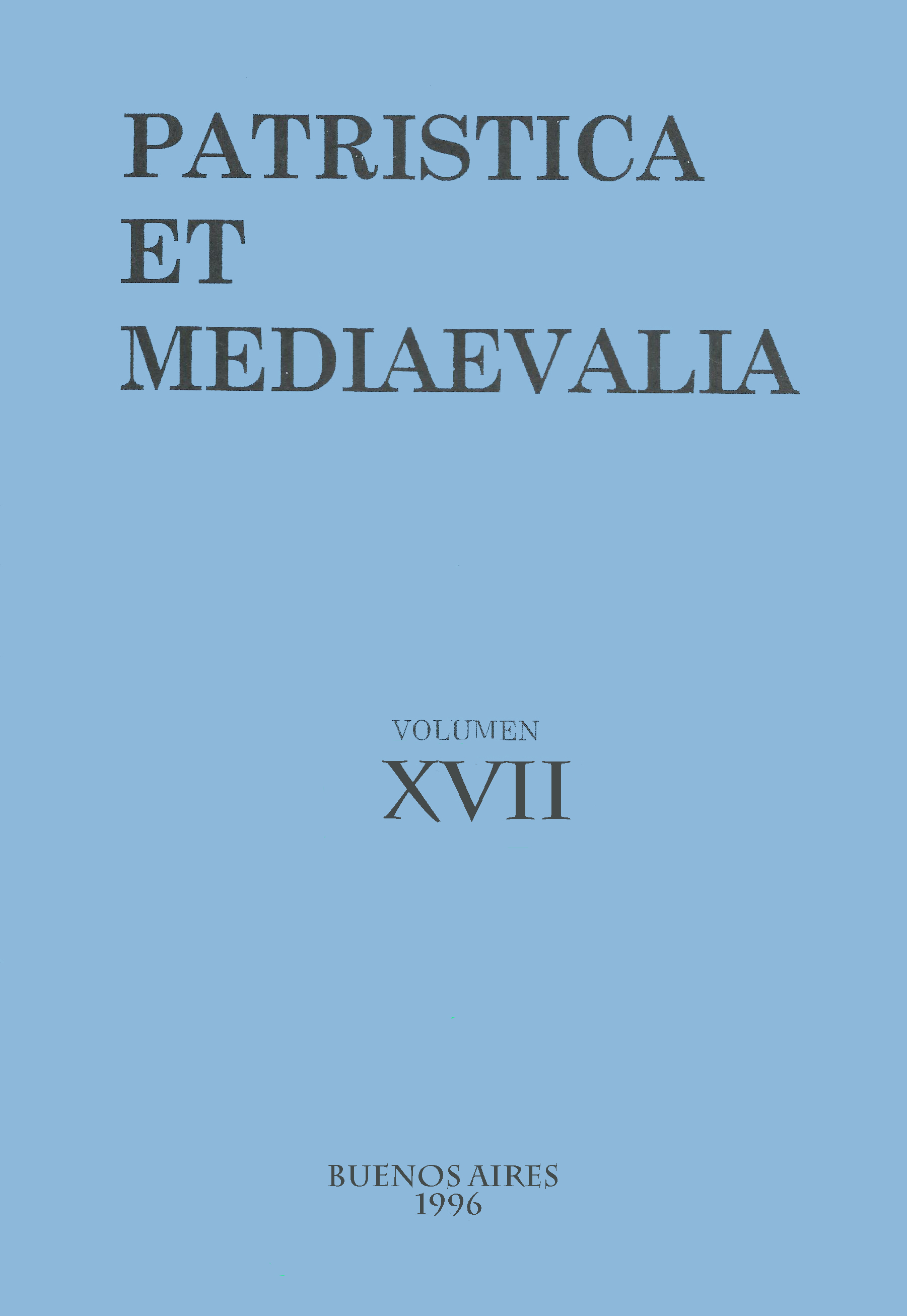Definitions of Nature in Boethius (1st Part)
Abstract
The author’s aim is to try to determine the meanings of natura in Boethius’ fifth Tractate, generally called Contra Eulyehen & Nestorium. In this first part, he pays attention to the four definitions of nature in the first chapter. He analyses and expounds each of them, and compares his interpretation with others. The conclusion of the article is the following: “nature” is an equivocal term because in the three first definitions or “descriptions” it has the sense of being (tò on), substance (tò ousiódes) or body (tò somatikòn ousiótes ón) but in the fourth it signifies essence (tò eidos). In the second part, he will examine the use of the word in the rest of the Tractate, especially in Boethius’ definition of persona.Downloads
1. The authors who publish in this magazine accept the following conditions:
-
They retain the copyright and grant to the magazine the right of the first publication, with the work registered under the Attribution-ShareAlike 4.0 International License that allows third parties to use what is published as long as they mention the authorship of the work and the first publication in this magazine.
-
They can make other independent and additional contractual agreements for the non-exclusive distribution of the version of the article published in this magazine (eg. include it in an institutional repository or publish it in a book) provided that they clearly indicate that the work was first published in this journal.
-
They are allowed and recommended to publish their work on the Internet (for example on institutional or personal pages).
2. AutoArchive Conditions. Authors are allowed and encouraged to distribute post-print electronic versions of their manuscripts because it promotes their circulation, a possible increase of quotation and a major reach among the Academic community. Color RoMEO: blue.













